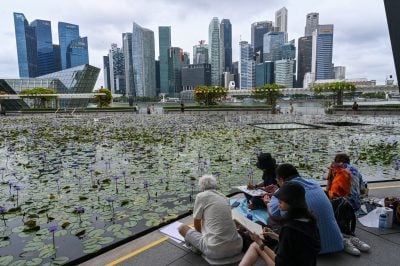This article was produced with the support of Brand South Africa
Those talks made the final touches to the launch of the World Trade Organisation (WTO) on 1 January 1995, and under the WTO rules South Africa has flourished as a player in global trade. One of the key economic achievements of a democratic South Africa has been to retain strategic industrial capacity for automotive manufacturing.
This was achieved through the highly successful Motor Industry Development Programme (MIDP) and the Automotive Productive and Development Programme (APDP). As a result, cars and primary goods dominate South Africa’s export sector.
Vehicle exports have been a success story and now account for two-thirds of domestic vehicle production.
This is to an extent is reflected in South Africa’s trade with China. China is South Africa’s largest trading partner. In 2022 China accounted for 9.4% of South Africa’s exports and 20.2% of South Africa’s imports, according to the South African Revenue Service. South Africa’s exports to China are dominated by two categories: mineral raw materials and iron and steel products.
Mineral exports to China totalled R120.4bn or a massive 63.9% of total exports to China, while the products of iron and steel were R37bn or 19.6% of exports to China. These two categories therefore accounted for 83.5% of exports to China.
South Africa has also become a renowned exporter. On the other hand, fruit and vegetables were responsible for a massive 81.1% of South African exports to Russia in 2022, while precious metal exports to the US accounted for 47.3% of exports to the US and vehicle exports were 10.7% of the total.
But there are challenges. South Africa’s manufactured goods cannot compete with the economies of scale enjoyed by Chinese producers, who are the factory of the world in the world’s largest exporter. Bulk exports have fallen since 2017 due to Transnet’s inefficiencies.
South Africa must now aim to increase the proportion of intermediate and finished goods that the country exports. South Africa has the potential to beneficiate more of the minerals it produces and advance in niche areas such as jewellery design and industrial design.
Since the country is the world’s largest platinum supplier, a valuable but declining opportunity is still available to manufacture catalytic converters for internal combustion engines that are still in demand.

 Sign in with Google
Sign in with Google 



